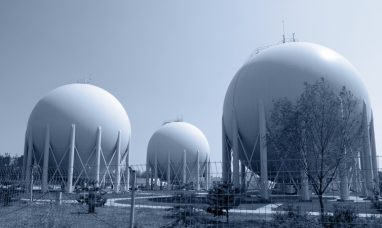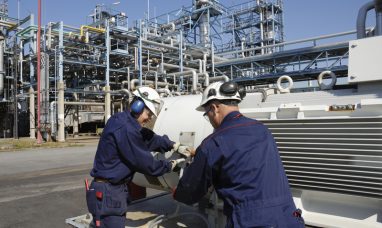WINNIPEG, MB, Jan. 17, 2024 /CNW/ – Canada is establishing itself as a global supplier of choice for clean energy in a net-zero world, boasting one of the world’s most comprehensive and detailed climate plans, a wealth of natural resources and a skilled workforce.
While industries around the world, including the aviation sector, are searching for more sustainable energy alternatives, Canadian workers and businesses are developing world-class industries to meet the global demand on the path to a net-zero future.
Today in Manitoba, the Honourable Jonathan Wilkinson, Minister of Energy and Natural Resources, joined the Honourable Wab Kinew, Premier of Manitoba, to announce a new combined federal investment of $6.2 million to support the future of sustainable aviation fuels in Manitoba in partnership with the Canada Infrastructure Bank (CIB) and the Province of Manitoba. This federal investment includes $5 million from the Clean Fuels Fund. This investment will support Azure in delivering a front-end engineering and design (FEED) study to unlock domestic growth in this emerging sector. The combined project investments total $12.3 million, including nearly $3 million in investments from the Province of Manitoba.
Azure’s FEED study will assess and prepare plans to define the development of a renewable distillates facility in the province, primarily focused on the production of sustainable aviation fuel with the ability and flexibility to produce other renewable clean fuels.
Azure’s planned processing facility will be near Portage la Prairie, Manitoba, and it is expected to create over 1,500 jobs during and after construction while producing around one billion litres of sustainable aviation fuel annually, primarily from Canadian feedstock such as canola and soybean oils. These results are expected to benefit the Manitoba economy through a $2-billion economic impact while helping the world shift away from more-polluting aviation fuels.
This investment in Manitoba builds on an earlier announcement of $5 million in federal funding through NRCan’s Clean Fuels Fund for a similar project with Azure Sustainable Fuels Corp. in British Columbia.
These projects will unlock growth opportunities across the domestic clean fuels market and lay the groundwork for the low-carbon fuels of the future while supporting the Canadian clean fuels industry’s rapid growth to meet the global demand to reduce pollution while bolstering energy security and affordability.
The Clean Fuels Fund’s investments are leveraging technology to help unlock opportunities across the supply chain in support Canada’s future as a global supplier of choice for clean energy in a net-zero world — ensuring a prosperous and sustainable future for Canadians in every region.
“Today in Manitoba, we announced a significant investment to seize global economic opportunities and help position Manitoba and Canada as leaders in the future of Sustainable Aviation Fuel production. These clean fuel projects will help create good jobs and grow the economy, all while reducing pollution on the path to net zero.”
The Honourable Jonathan Wilkinson
Minister of Energy and Natural Resources
“By partnering with Azure through our FEED financing, we are supporting a made-in-Canada solution to expand production of sustainable aviation fuels, leverage Canada’s agricultural sector and reduce greenhouse gas emissions in the aviation sector. This is an exciting first step for the CIB, and we look forward to advancing more projects such as carbon capture and storage, hydrogen and clean fuels with our FEED financing initiative.”
Ehren Cory
Chief Executive Officer, Canada Infrastructure Bank
“With innovators like Azure and support from Minister Wilkinson and his government, there is so much opportunity for Manitoba to be a leader in the low-carbon economy. Our province is ready to foster exciting, new technologies that leverage Manitoba’s thriving agricultural sector and position our province as a hub for cutting-edge development in the sustainable aviation fuel space.”
Wab Kinew
Premier of Manitoba
“Today’s investment in Azure’s sustainable aviation fuel projects is an important development for our economy and in the fight against climate change. By investing in good jobs in growing clean industries, the Government of Canada is supporting Manitoban communities to thrive in a prosperous low-carbon future.”
Ben Carr
Member of Parliament for Winnipeg South Centre
“The province of Manitoba is proud to support the biotechnology industry in Manitoba, and this investment reflects our support for all levels of government working together to find solutions to the environmental challenges we are facing. Innovative projects such as this will create the highly skilled jobs needed for the economy of tomorrow.”
The Honourable Jamie Moses
Minister of Economic Development, Investment, Trade and Natural Resources, Province of Manitoba
“Azure’s ambition is to develop the first SAF-dedicated renewable fuel production facility of scale in Canada, and we are pleased to be partnering with the CIB to secure the remaining funding required to complete our FEED studies. We believe that a Canadian SAF facility is a ‘win-win-win’ scenario for all Canadians, its agricultural industry and its aviation industry in that SAF from our facility reduces emissions by up to 80 percent, creates long-term, stable demand for Canadian agriculture products that are currently exported and supports the airline industry in reaching its climate goals.”
Douglas Cole
Chief Executive Officer, Azure Sustainable Fuels Corp.
- $5 million in federal funding was provided through Natural Resources Canada’s Clean Fuels Fund (CFF), which supports building new and expanding existing clean fuel production facilities as well as feasibility and front-end engineering and design studies. This support will enable the sector to grow at the size and pace required to contribute to Canada’s climate goals.
- Launched in June 2021, the Clean Fuels Fund aims to invest $1.5 billion to grow the production of clean fuels in Canada, such as hydrogen, biofuels and synthetic fuels.
- Canada’s Clean Fuel Regulations are incentivizing innovation and investment in low-carbon alternatives that are helping Canadian industries to advance toward net zero while enhancing their long-term competitiveness and creating good jobs for generations to come.
- According to the International Energy Agency, in 2022 aviation accounted for two percent of global energy-related CO2 emissions, having grown faster in recent decades than rail, road or shipping, reaching nearly 800 Mt CO2. CO2 emissions are expected to grow rapidly and to surpass their 2019 level around 2025. Sustainable aviation fuels are therefore a critical component to decarbonizing the sector.
- Developing new sources of clean energy also aligns closely with the Government of Canada and the Province of Manitoba’s commitment to increased collaboration through the Regional Energy and Resource Tables, which are joint partnerships between the federal government and individual provinces and territories to identify and accelerate the most promising economic opportunities for a net-zero future. The Regional Tables support clean growth by helping to align resources and timelines across all levels of government and better coordinating regulatory and permitting processes — all while respecting the rights and engaging the interests of Indigenous Peoples as well as enlisting the expertise of key stakeholders such as industry and labour.
- Clean Fuels Fund
- Clean Fuel Regulations
- Azure Sustainable Fuels Corporation
- Canada Infrastructure Bank
- Government of Manitoba
- 2030 Emissions Reduction Plan
- The Framework to Build a Green Prairie Economy
Follow us on LinkedIn
SOURCE Natural Resources Canada

Featured image: Depositphotos © Zybr78









